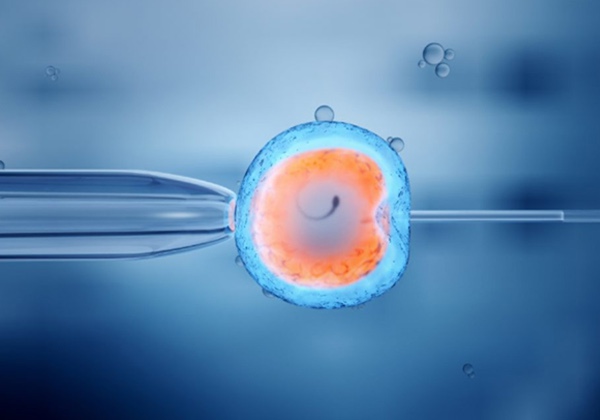在代孕中,谁是生物学母亲?解析亲子关系认定

代孕是一种帮助那些无法自行生育的人拥有孩子的途径。它让家庭得以成长。但有一个重要的问题:在代孕中,谁是生物学母亲? 本文将详细解释这一问题,并探讨不同类型代孕中的生物学母亲角色。
“生物学母亲”在代孕中的含义是什么?
生物学母亲是指提供卵子孕育孩子的人。她的卵子与精子结合创造了生命,因此她与孩子有直接的基因联系。在代孕中,生物学母亲的身份取决于代孕的具体类型,主要包括以下两种情况:
- 代孕母亲(在传统代孕中)。
在传统代孕中,代孕母亲不仅承担怀孕和分娩的角色,还提供了自己的卵子,因此她既是孩子的分娩母亲,也是生物学母亲。这种双重身份可能引发复杂的法律和伦理问题,例如代孕母亲是否可能主张对孩子的抚养权。 - 卵子捐赠者或意向母亲(在妊娠代孕中)。
在妊娠代孕中,代孕母亲不提供卵子,仅作为“孕育载体”。此时,孩子的生物学母亲是提供卵子的一方,可能是意向母亲或第三方卵子捐赠者。这种分离使得亲子关系更加清晰,但也需要依赖法律协议来明确权利和义务。
这意味着生物学母亲并不总是孩子的分娩者。这种区分对亲子关系的法律认定和社会伦理有着深远的影响,特别是在跨国代孕或不同法律框架下,如何界定生物学母亲的身份成为关键问题。

传统代孕:代孕母亲即生物学母亲
什么是传统代孕?
在传统代孕中,代孕母亲使用自己的卵子来孕育孩子。这意味着她不仅是孩子的分娩者,同时也是生物学母亲。这种形式的代孕通常通过人工授精完成,代孕母亲的卵子与意向父亲或捐赠者的精子结合形成胚胎。传统代孕是最古老的辅助生殖形式之一,但由于其涉及基因联系,法律和伦理争议较多。
它是如何运作的?
- 医生通过人工授精的方式将意向父亲或捐赠者的精子注入代孕母亲体内。
- 代孕母亲的卵子受精后,胚胎在其子宫内发育。
- 孩子出生后,按照协议,代孕母亲需将孩子交给意向父母抚养。
为什么这一点很重要?
由于代孕母亲是生物学母亲,她与孩子之间存在直接的基因联系。这种基因联系可能引发情感依附,甚至导致后续的法律纠纷。例如,代孕母亲可能因情感因素拒绝交出孩子,而意向父母则主张自己是合法监护人。因此,传统代孕在许多国家受到严格限制甚至禁止。
妊娠代孕:代孕母亲不是生物学母亲
什么是妊娠代孕?
在妊娠代孕中,代孕母亲不使用自己的卵子。而是通过体外受精(IVF)程序完成受孕。这意味着代孕母亲与孩子没有生物学关系。这种形式的代孕是现代辅助生殖技术的重要发展,近年来在全球范围内越来越普遍。
它是如何运作的?
- 从意向母亲或捐赠者处取出卵子。
- 精子来自意向父亲或捐赠者。
- 受精卵在实验室中结合后,经过培养选择质量最佳的胚胎,随后被植入代孕母亲的子宫。
为什么这一点很重要?
因为代孕母亲不是生物学母亲,因此情感纽带较少。这降低了监护权争夺的可能性。此外,由于基因和分娩角色的分离,法律纠纷的风险也显著减少。妊娠代孕因其明确的法律和伦理界限,成为许多家庭的首选方式。
法律视角:谁被认定为母亲?
孩子出生后会发生什么?
在代孕情境下,代孕母亲通常会被默认列为出生证明上的生母,这是因为“分娩者为母”原则在许多司法管辖区被广泛认可。这一原则认为,分娩孩子的女性在法律上被视为孩子的母亲,无论其是否与孩子有基因联系。然而,在妊娠代孕中,代孕母亲与孩子并无基因联系,因此她的身份更多是“生育载体”。尽管如此,法律上的默认地位使得意向父母需要额外的法律程序来确认亲子关系。

父母权利如何转移?
- 意向父母需要通过法律程序确立亲子关系。例如,在某些国家或地区,意向父母必须向法院提交申请,要求裁定他们为孩子的合法父母。
- 法院通常会根据代孕协议、孩子的最佳利益以及相关法律规定,作出裁定。如果裁定通过,意向父母将获得完整的法律父母身份。
- 随后,出生证明会被更新为意向父母的名字,完成法律上的亲子关系转移。
为什么这一点很重要?
明确的法律规定能够有效避免混淆和争议,特别是在涉及孩子的监护权、抚养义务以及继承权等问题时。如果法律框架不清晰,可能会导致复杂的法律纠纷,甚至影响孩子的权益。例如,代孕母亲可能因情感或经济原因主张自己为孩子的母亲,而意向父母则需通过法律手段维护自己的权利。因此,完善的法律体系对于保护所有相关方的利益至关重要。
伦理与情感考量
代孕中的伦理问题有哪些?
代孕引发了一系列深刻的伦理争议,主要集中在以下几个方面:
- 利用女性身体进行代孕被视为对女性的工具化,甚至可能加剧剥削和不平等。代孕行为在某些情况下可能迫使经济困难的女性为了金钱而承担健康风险,这被认为是对女性尊严的侵犯。
- 支付代孕费用过高可能导致商业化风险,将生育行为变成一种交易;而费用过低则可能忽视代孕母亲的健康与权益,进一步加剧伦理困境。
- 代孕是否对孩子公平也成为焦点,因为孩子可能面临身份认同困惑以及家庭关系的复杂性。例如,“多母”现象(基因母亲、妊娠母亲和社会母亲)可能让孩子难以明确自己的家庭归属。
情感挑战呢?
代孕不仅涉及伦理争议,还带来许多情感上的挑战:
- 代孕母亲在交出孩子时可能经历强烈的情感波动,尤其是在传统代孕中,由于基因联系的存在,这种情感冲突更为显著。她可能感到失落或内疚,甚至试图争取孩子的监护权。
- 意向父母在整个过程中可能承受巨大的心理压力,包括对代孕母亲的信任问题以及对未来亲子关系的担忧。他们也可能因社会偏见而感到不安。
- 孩子在成长过程中可能会对自己的家庭背景产生疑问,不确定谁才是“真正的母亲”,这对其心理健康可能造成长期影响,甚至导致身份认同危机。
决定代孕亲子关系的关键因素
基因扮演了什么角色?
基因是确定亲子关系的核心要素。如果代孕母亲使用了自己的卵子,她不仅是孩子的分娩者,也是生物学母亲,因为她的基因直接参与了孩子的形成。这意味着孩子在遗传学上与代孕母亲有直接联系,这可能引发复杂的法律和情感问题。然而,在妊娠代孕中,代孕母亲并未提供卵子,因此她仅作为“孕育载体”,与孩子没有基因联系。这种区分尤为重要,因为在法律和伦理层面,基因联系往往被视为界定亲子身份的主要依据。例如,在涉及监护权争议时,基因关系通常被优先考虑,尤其是在传统代孕中,代孕母亲的基因联系可能使她主张更多的权利。

法律协议的作用是什么?
在代孕开始之前,所有相关方通常会签署一份详细的合同,明确规定孩子的父母身份归属。这份协议尤其在妊娠代孕中起到关键作用,因为它明确了意向父母的法律地位,并规避了潜在的纠纷。例如,在许多国家,即使代孕母亲分娩了孩子,法律协议仍能确保意向父母被认定为合法父母。此外,法律协议还可以涵盖其他重要事项,例如代孕母亲的补偿、医疗费用以及双方的责任和义务。通过这种方式,法律协议不仅保护了意向父母的权益,也为代孕母亲提供了明确的行为框架,从而减少了后续可能出现的冲突。
各国/地区的代孕法律
代孕在哪些地方合法?
- 吉尔吉斯斯坦、印度、乌克兰和加利福尼亚州允许商业代孕。
吉尔吉斯斯坦近年来成为新兴的代孕目的地,其法律框架参考了邻国哈萨克斯坦的规定,允许商业代孕。印度曾是全球知名的代孕中心,但自2015年起实施严格限制,仅允许非商业代孕,并且仅限印度公民使用,国际客户不再被接纳。乌克兰则对代孕持开放态度,法律规定代孕母亲或捐赠者对孩子无父母权,意向父母从受孕时起即为合法父母,这吸引了大量国际准父母。美国加利福尼亚州以其宽松的法律环境著称,有偿和无偿代孕均受保护,法院通常会执行代孕合同,保障意向父母的权益。 - 英国、许多美国州份和澳大利亚禁止商业代孕。
在这些国家和地区,仅允许无偿代孕,代孕母亲拥有更多自主权。例如,在英国,代孕母亲即使签署了协议,仍有权在孩子出生后反悔并保留监护权,法律更倾向于保护代孕母亲的权利。
法律有何不同?
- 一些地方保护意向父母的权利。
例如,在乌克兰和加州,法律明确保障意向父母的亲子权利,并要求出生证明直接登记为意向父母的名字,避免后续法律纠纷。 - 其他地方则赋予代孕母亲权利。
在英国和澳大利亚,代孕母亲拥有更大的自主权,甚至可以在孩子出生后反悔并保留监护权,这种规定增加了意向父母的风险和不确定性。
总结
在代孕中,生物学母亲的身份取决于代孕的类型。在传统代孕中,代孕母亲既是分娩者又是生物学母亲,因为她提供了卵子。而在妊娠代孕中,代孕母亲仅作为怀孕载体,生物学母亲是提供卵子的一方(可能是意向母亲或捐赠者)。
此外,法律和伦理问题在代孕中起着重要作用。不同国家和地区的法律规定各不相同,意向父母需要充分了解相关法规以保护自身权益。伦理上,代孕涉及对女性身体的使用、孩子权益的保护以及家庭关系的复杂性。
通过理解这些内容,我们可以更好地认识代孕的运作方式及其背后的深远影响。